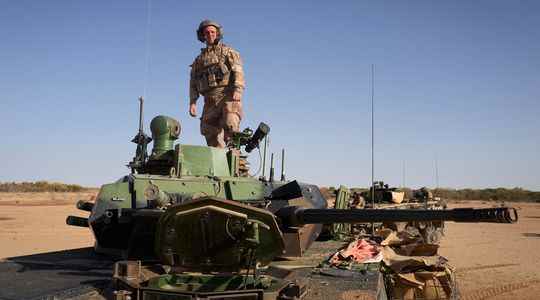Nothing could prevent the disaster scenario in Burkina Faso. This Monday, soldiers in fatigues took to national television and announced, facing the camera, the dismissal of President Kaboré, kidnapped a few hours earlier. The new strong man of the country, Lieutenant-Colonel Paul-Henri Sandaogo Damiba, joins the club – less and less select – of young putschists who have been raging in the region since the summer of 2020. The black series began in Mali, victim a first coup on August 18, followed by a second, nine months later, led by the same Colonel Assimi Goïta, 39, tired of sharing power with civilians. Meanwhile, in neighboring Chad, a 38-year-old officer has seen fit to take over from his father as president, in defiance of the Constitution. Then came Guinea, led since September by a quadra in kepi, always, according to the established formula, “in the best interests of the Nation”.
In recent weeks, all observers have been warning in chorus: the next on the list would be Burkina Faso, which has been plagued by jihadist groups for six years. The security forces lack everything to fight terrorists. In the aftermath of the attack which claimed the lives of 53 gendarmes, on November 14, in Inata (in the north of the country), the revelations about their living conditions had shocked public opinion. In the days leading up to the assault, the starving men had had no choice but to hunt for food. Faced with the anger of the army, the president gained time by announcing, in mid-December, a government reshuffle. But the respite was short-lived and the country was in turn in the hands of the soldiery. “The Assimi Goïta variant is spreading dangerously!”, headlines the Burkinabé online media Wakat Séra.
Go or stay? The impossible French dilemma
For France, engaged militarily in the Sahel for nine years, the result is calamitous: there remains, in the area of intervention of Operation Barkhane, only one state – Niger – led by an elected president. Suffice to say a nightmare for Paris, which has been hammering for months that salvation will come from good governance in these countries. “The French strategy in the Sahel is collapsing, notes Michael Shurkin, analyst at the consulting firm 14 North Strategies, specialist in the Sahel. Emmanuel Macron’s bet was to push the Sahelian leaders to do their part of the job: to govern well, to reform the security forces. Because without that, military actions can do nothing.”
But the Elysée is struggling more and more to be heard as Barkhane gets bogged down. The “neutralization” of several jihadist leaders does not change anything. “Barkhane is a succession of tactical successes which leads to a strategic failure” comments, bitterly, a diplomat connoisseur of the region.
In terms of diplomacy, the results are not more encouraging. With Mali, once a privileged partner of France, the divorce has been consummated since the landing in Bamako of Wagner’s Russian mercenaries. On the ground, cooperation is increasingly complicated. The Malian authorities have asked their counterparts to revise the defense agreements that bind the two countries. Worse, the junta is now attacking the Takuba force, which brings together European special forces from a dozen countries under French command. Monday, Bamako urged the Danish contingent participating in this operation to leave the country immediately, claiming not to have been informed of this deployment. As for Niger, it does not want it on its soil.
Niger in danger
Monday’s coup in Ouagadougou adds a new unknown to the equation. Especially since part of the Burkinabe population, overwhelmed by insecurity, applauded the coup in the street. No one yet knows the state of mind of Colonel Sandaogo Damiba, a graduate of the Paris School of War, vis-à-vis France. But the growing popular discontent with regard to the Western presence makes the anti-French discourse increasingly profitable. And the position of the Elysee more and more untenable.
“France cannot continue like this, it must urgently rethink its strategy” continues Michael Shurkin. It remains to be seen in which direction. One thing is certain, there will be no good solution. “The exit will be painful”, confided several weeks ago a senior officer of the French army to L’Express.
“Several scenarios are possible, continues Michael Shurkin: either France leaves the Sahel to entrench itself in the coastal countries (Togo, Senegal, Benin, Côte d’Ivoire), where it tries to strengthen the security forces, because the terrorist threat Either it reduces its footprint to a minimum by limiting it to special forces operations, a bit like Operation Saber – elite commandos deployed in the Sahel since 2012.”
If one of these options is chosen, it won’t happen overnight anyway. Leaving the Gao base, the largest French military hold in Mali, could take several months, according to the French general staff. In the meantime, all eyes are on the last survivor of the putsch epidemic: Niger. In this country too, armed groups are gaining ground, the army seems powerless and the state has deserted entire areas of its territory. In short, the same ingredients as in Mali and Burkina Faso. “It is clear that Niger is in danger, even if for the time being, the president seems to be a little better in control of the situation”, analyzes Michael Shurkin. So far, so good…
